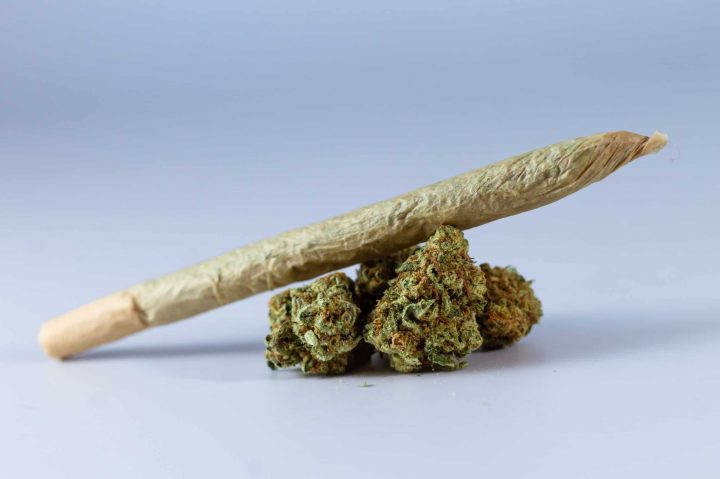
The cannabis plant is complex. When you have come across CBD, it’s more likely that you have also heard of THC. The most common knowledge is that CBD does not give you a high while THC does. You may think that is all there is to it, but wait till you get to know 130 identified cannabinoids that have their own unique properties.
Let’s start with CBG. CBG is known as the precursor or mother of all the cannabinoids available in the world. When the CBG in a cannabis plant is exposed to sunlight or any natural heat, it is turned into CBDA or THCA which becomes CBD and THC. This is why the majority of cannabis strains only have 1 percent CBG since most of the CBG becomes another cannabinoid.
Now let’s talk about the difference between CBG and CBD. CBD mostly does not interact with cannabinoid receptors while CBG does the same as THC. CBG instead interacts indirectly with the endocannabinoid system. More studies are done on CBD but studies on CBG are limited.
By saying THC, this refers to Delta-9-tetrahydrocannabinol or Delta-9. The benefits brought about by THC all come from this molecule THC, which gives the classic high. Delta-8-THC or tetrahydrocannabinol is a natural cannabinoid you can find in cannabis specifically in hemp and marijuana. It is often seen as that substance in between CBD and Delta-9 THC. Delta-8 is known to provide a smoother experience than Delta-9. Its effects also come more gradually.
Benefits of CBD, CBG, Delta-8-THC, and Delta-9 THC
According to studies, CBG comes with a lot of therapeutic benefits from dealing with inflammation up to treating cancer. CBG has also been observed to act as an antibacterial cannabinoid that has the strength to defeat MRSA or Methicillin-Resistant Staphylococcus Aureus (MRSA). MRSA is a type of bacteria that thrives on the skin surface and in noses as well. This bacteria causes a disease known as a staph infection. It has also been seen to treat Huntington’s disease and helps to improve bladder functions.
CBD, on the other hand, has been known to treat some of the most potent childhood epilepsy syndromes like Dravet syndrome and Lennox-Gastaut syndrome (LGS) that don’t respond a lot to antiseizure medications. It has also been observed to treat anxiety, insomnia, and various kinds of chronic pain.
Meanwhile, Delta-8-THC has shown a positive impact in lessening the adverse effects of chemotherapy like vomiting. Physicians have also seen its potential in treating corneal hyperalgesia or inflammation of the eyes and for treating pain.
Delta-9-THC is known to stimulate appetite and it is an antiemetic drug. It has been administered to alleviate the side effects of HIV or cancer chemotherapy. It is also used in various areas of pain therapy. THC has also shown great potential in treating glaucoma, low appetite, muscle spasticity, and insomnia.
Side Effects of CBD, CBG, Delta-8 THC, and Delta-9 THC
Little is known about the side effects of CBG particularly about its combination with other medicines, supplements, and vitamins. That’s why it is important to check with your physician before you take CBG.
CBD on the other hand is said to cause lightheadedness, dry mouth, low blood pressure, and drowsiness when taken orally. Some patients also reported to suffer from liver injury after taking it but these are isolated cases.
Delta-9 THC has its share of adverse effects which include sleep issues, addiction, laziness, paranoia, and anxiety. There are some people though who enjoy the benefits of Delta-9 without experiencing the side effects. Delta-8 THC on the other hand has the following adverse effects: dry mouth, anxiety, dry eyes, grogginess, and having too much body and mind high.
Legality of CBD, CBG, Delta-8-THC, and Delta-9 THC
CBD products from hemp are legal on federal laws, but some state laws still consider them illegal. Those that come from marijuana are illegal on the federal level but legal in some states. CBG is not considered one of the controlled substances in the United Nations Single convention. But if it is derived from THC-laden sources like marijuana it is considered a Schedule 1 substance. CBG is not approved as an ingredient in food and any supplements.
According to the 2018 Farm Bill 297A, Delta-8-THC is legal. The bill states that all isomers, derivatives, and cannabinoids are legal for as long as the final product has less than 0.3% Delta 9 THC. It also amended the Controlled Substances Act, which removed all the tetrahydrocannabinols in hemp.
Cannabis plants such as marijuana which is full of Delta-9 THC are illegal to consume in most states. Its sister plant the hemp which has non-psychoactive cannabinoids such as CBG, CBD, and a lot more is legal to purchase and consume in all states, still due to the 2018 Farm Bill Act.
Smoking CBD, CBG, Delta-8-THC, and Delta-9 THC

CBD and CBG have the same effects when they are smoked or vaped. CBD-rich cannabis can irritate the throat slightly when it goes down. CBG on the other hand hits in a smoother manner, which makes it feel like THC.
When it comes to smoking CBG, you have the same options as that of smoking CBD. Some of these include CBG flower, CBG vape, and CBG prerolls. The pre-rolls provide a nutty terpene profile and they help improve focus. This product can easily fit inside your pocket or be stored in your medicine cabinet. When you need it, all you have to do is light it up.
Before the pre-rolls, there’s the CBG flower in its original bud form. You may need to grind it when you choose this product. This is best if you opt to use this at home and you have a huge space for stretching out. Vaping will be discussed later.
Delta-8 THC, in general, comes in a distillate form which is available in cartridges or syringes. It can be vaporized using a standard weed pen or the dab rig. This can also be mixed with the flower to enhance its potency level.
Delta-9 THC is no different from Delta-8 in terms of product forms. It can be consumed through inhalation, oral intake, topical application, and also sublingual ingestion. Inhalation is by far the fastest method of delivery and it also offers the quickest effects. There are many different ways to inhale THC. This is done through smoking and vaping.
Vaping CBD, CBG, Delta-8-THC, and Delta-9 THC

When it comes to vaping CBG and CBD alike, it refers to consuming cannabidiol through vapor inhalation with the use of an electronic cigarette or a vaping device, making sure that you don’t ingest any harmful compounds from the burning process. For you to vape CBD, you need to purchase a bottle of CBD vape oil which is also known as e-liquid or CBD vape juice. You can find some of these that are flavored while others come off as having a natural hempy smell.
There are many benefits to vaping CBD. First, it allows the fastest absorption of cannabidiol. The CBD in this manner of consumption interacts with the endocannabinoid system in just 2 to 3 minutes while when taken orally it can take 20 minutes for the effects to kick in. This is why vaping is more preferred by people who are suffering from severe or chronic pain. The method also allows for the right dosage of intake. It is almost impossible for users to overdose when using CBD vape oils and e-liquids. Vaping CBD also gives you a more pleasing experience of ingesting the substance compared to using traditional CB tinctures and oils. One other thing is that studies revealed that CBD vape products can help reduce nicotine smoking.
For a lot of vapers, the delta-8 THC enables them to hit the sweet spot between truly cool CBD and the paranoia-inviting delta-9 THC. It offers a little high that does not bring about intense sedation or the uncomfortable mind buzz. Those who have experienced the paranoia effects of taking medical marijuana respond better to delta-8 THC. Patients who suffer from mental conditions like PTSD or social anxiety. Its psychoactive effects are sought after by those who suffer from chronic stress. Delta-8 THC has also been observed to have anti-nausea potential; it also has an impact on appetite stimulation.
Vaping delta-9 THC oil requires heating the oil and inhaling it through the use of a vaporizing device like a vape pen and e-cigarette. Some people believe that smoking delta-9 THC is safer compared to smoking because it does not involve smoke inhalation.
CBD, CBG, Delta-8 THC, and Delta-9 THC Edibles
There are various CBD and CBG edibles that are available in the market at present such as CBD/CBG gummies and capsules, CBD-infused drinks and food, and CBD sublingual products. CBD/CBG pills, gummies, and capsules are being promoted in the market as daily sleep supplements or vitamins. CBD edibles take a long time to be ingested by the system. It goes through a long process which is cut short through the use of sublingual or taking CBD by placing it under the tongue.
When you check the market today, you will come across Delta-8 THC edibles that include uplifting gummies and broad-spectrum tinctures. Delta-8 THC gummies can give you that uplifting and motivating feeling and at the same time a calming body sensation.
The truth is that edibles whether CBD, CBG, Delta-8 THC, and Delta-9 are cannabis-based food items that have different forms such as brownies and gummies. These products often contain either one or both THC and CBD which are marijuana’s active ingredients. Edibles have been enjoying an increase in popularity due to the legalization of marijuana. One added benefit of these edibles is that they don’t cause respiratory system conditions, unlike smoking marijuana.
The experience users get from edibles differs from what they go through when using other cannabis products. The high users get from edibles can be really intense. It may also last longer than the high that smoking offers. The effects of edibles may take longer than smoking or vaping for the cannabis effects to kick in even though there are many factors that may affect the timing.

